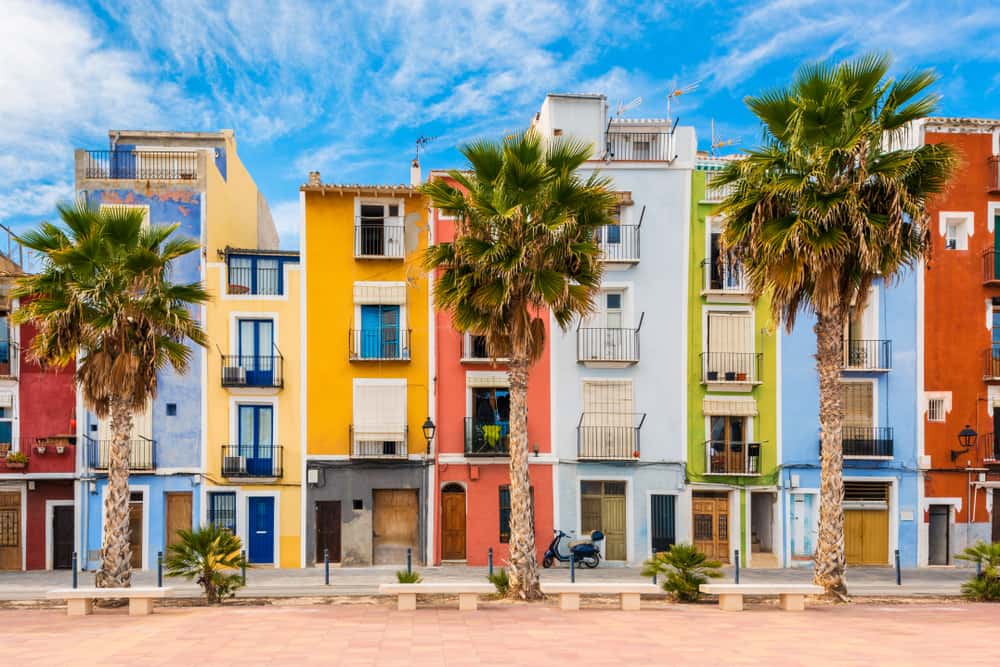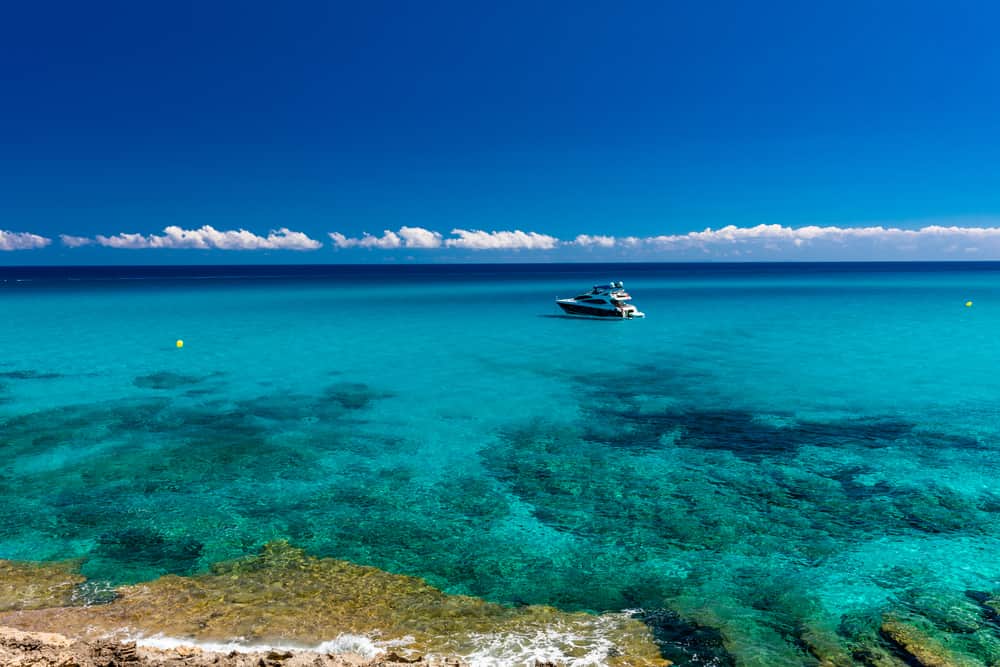Buying property in Estepona as a UK foreigner
Read our comprehensive guide to buying property in Estepona as a foreigner, including average prices, fees, taxes and where to start house hunting.

Dreaming of retiring in sunny Spain? It’s easy to see why, as Spain offers sun, sea, sand and sangria just a short hop from the UK. It’s a popular choice for UK expats and retirees, with more than 360,000 British residents officially registered in Spain¹.
But just how easy is it to retire there from the UK, especially after Brexit? We’ll cover everything you need to know about retiring in Spain, including visas, healthcare, popular spots for expats and much more.
We’ll even throw in a handy tip for managing your money between the UK and Spain - open a Wise multi-currency account. This lets you send and receive money internationally for low fees and the mid-market exchange rate, which could save you a bundle on relocation costs compared to using your bank.
But first, let’s look at why Spain is such an attractive destination for UK retirees, just in case you’ve not quite made up your mind.
Spain has long been the UK retiree’s destination of choice, and it’s not difficult to see why. This sun-soaked Mediterranean country has a long list of plus points, including:
Warm and pleasant year-round weather. Spain has a mild climate throughout the year, making it the ideal choice for escaping the cold, wet British winter. It gets seriously hot in the summer, particularly in the south of the country.
Cost of living in Spain. This Mediterranean country is one of the cheaper places to live in Europe, especially compared to the UK. For example, the cost of a three-course meal is around £35 in Spain, compared to £50 in the UK. You’ll pay around £2.18 for a beer, compared to £3.70 in the UK. And to rent a one-bed apartment in a city centre will set you back just £564, compared to £750 in the UK².
Excellent healthcare. Spain regularly ranks highly among global healthcare systems, and the 2018 Euro Consumer Health Index put it at 19th in the world³. As a retiree, it may not be possible to access free state healthcare, as you are not working or paying social security contributions. However, many expats choose to get private healthcare insurance to cover their medical care.
Quality of life. Spain is famous for its stunning beaches and sun-kissed coastlines, along with delicious food and welcoming locals. But there are also plenty of options for culture-rich city living, or a laid-back lifestyle in the idyllic Spanish countryside.
Spain is a country with a varied climate and a fabulous mix of coastal retreats, modern cities and tranquil countryside. So, where will you choose? Let’s take a look at a few of the best places to retire in Spain for UK expats...

The ‘white coast’ of Spain is a thriving tourist destination, but places such as Alicante and Benidorm are also home to well-established UK retirement communities. There are diverse landscapes and resorts here to suit every taste, whether you’re there for the gorgeous natural scenery or the buzzing cosmopolitan atmosphere of cities like Alicante.

Malaga, Marbella and Torremolinos in the Costa del Sol are hugely popular with British expats seeking glorious sunshine. This coastal Andalusian region is known for sun, sea and sand, making it perfect for a beach-based retirement. It boasts spectacular sun-kissed scenery, fabulous food and a party atmosphere, particularly in summer. But you can also get a taste of Spanish culture and modern city life in larger cities such as Malaga.

Islands such as Tenerife, Gran Canaria and Lanzarote are a fantastic choice if you’re looking to escape the cold British winter and enjoy warm, pleasant year-round weather. These islands, an autonomous community of Spain, offer great quality of life and a reasonably low cost of living too.

Looking for a livelier retirement? Many British expats head to the Balearic Islands to relive memories of holidays gone by. Popular choices are Majorca, Mallorca and of course, Ibiza. There are quieter, more peaceful parts of these islands if you’re looking for a more laid-back pace of life, but the key tourist areas are hugely busy in the summer.

If you’re not quite ready for the charms of a traditional Spanish village and you’re used to city living, head to one of Spain’s major hubs.
The well-connected cities of Madrid and Barcelona offer a dazzling choice of restaurants, shops, cultural and historical attractions, but you might also want to consider the beautiful, quieter cities of Valencia and Seville.
Bear in mind that retiring to a Spanish city will almost certainly be more expensive compared to countryside or coastal parts of the country.
The UK officially leaving the European Union has triggered some quite significant changes for UK expats living and working in EU countries such as Spain. Here’s what you need to know:
Visas. You must apply for a residency visa to retire in Spain, which requires providing evidence of enough income to cover your living expenses.
Money - how much income do I need to retire in Spain? One of the key requirements to get a Spanish retirement visa as a non-EU citizen is proof that you have a minimum monthly income of at least €2,259⁴ (around £2,000). For each additional member of the family living with you in Spain, you’ll need an extra £565 a month⁴ in income. Meeting these requirements can be tricky for some retirees, as of course most won’t be working. You’ll need to make sure you have enough in pension, property or investment income to meet the requirement.
Registering as a resident. One of the first things you’ll need to do upon arrival in Spain is to apply for an official residence card or Tarjeta de Identidad de Extranjero (TIE) from your local immigration office or Oficina de Extranjeros⁵.
Healthcare for retired expats in Spain. Many state healthcare services in Spain are free for those living and working in the country, but you may not be eligible as a retiree as you won’t be paying social security contributions as an employee. If you’re not eligible, you’ll need to take out a comprehensive medical insurance policy. Proof of health insurance may also be a requirement for the Spanish residency visa for retirees.
Pensions. You can receive your UK state pension in Spain once you reach retirement age. You may also be able to transfer over other personal or workplace pensions, so that you’ll have all your pension income in one place. To do this, you’ll need to make sure your Spanish pension provider is a qualifying recognised overseas pension scheme (QROPS) - this is a list of schemes recognised by HMRC here in the UK. If you choose a scheme that isn’t on this list, you could face an eye-watering tax bill.
Buying property. If you’re looking to buy a home in Spain, the good news is that Brexit shouldn’t affect this. The legal right to buy property in Spain isn’t limited to EU citizens⁶, so you should be able to snap up your dream pad as long as you can pay the purchase price.
Driving licences. The last thing to note about the post-Brexit changes for expats in Spain relates to getting a driving licence. Before the UK’s exit from the EU, you could use your UK driving licence in Spain. But you’ll now need to apply for a Spanish driving licence¹ if you want to motor along the Costa del Sol.
Before you can move to Spain, you’ll need a residency visa. For retirees who don’t plan to work, the visa to apply for is the ‘visado de residencia no lucrativa’, or Non-Lucrative Residence Visa.
The first step is to download and complete the application form, which you can return with your supporting documents to the Consulate of Spain in London. You’ll need to make an appointment in advance.
When you attend your appointment, you’ll need to bring the following⁷:
Lastly, you’ll need to pay the visa application fee, then wait up to three months⁸ for your application to be processed.
Once you’ve lived in Spain for five years under this visa, you may be able to apply for permanent residency⁹. This can have lots of benefits, including giving you access to free state healthcare and removing the need to meet the required income threshold.
So, you’re nearly ready to make the big move to Spain. It’s never easy or straightforward to move to a foreign country, and you’ll have a lot of things to do. Here are just a few of the most important things to tick off your list:
Take out a healthcare insurance policy - you’ll need this in order to apply for your Spanish visa.
Apply for your residency visa - remember, it can take up to 90 days for your application to be processed, so do it early.
Find somewhere to live - it’s up to you whether you buy or rent, but it could be a good idea to make a few trips to Spain as a tourist to get a feel for the area and scout out potential properties.
Arrange for your furniture and belongings to be shipped to Spain - alternatively, consider travelling light and buying what you need when you arrive.
Register as a resident - apply for your Tarjeta de Identidad de Extranjero (TIE) or Foreigner Identity Card at your local police station or immigration office - you must do this within one month of arriving in Spain⁷.
Apply to receive your UK state pension in Spain - you can do this at the Government website, where you can also find information about transferring personal pensions to Spain.
Open a Spanish bank account - this will be essential for paying rent and covering daily expenses, but it could be expensive for international payments. We’ll look at a cheaper alternative to use alongside your Spanish bank account in just a moment.
One of the most important things to get sorted before retiring to Spain is how you’ll manage your money.
For starters, you’ll have payments to make to Spain from the UK before you even set foot on a golden Spanish beach - to cover things such as visa fees, rental deposits or real estate costs. Make these payments through your bank and you could lose money to currency conversion fees and unfavourable exchange rates.
Luckily, there is a better way. Open a multi-currency account with Wise and you can whizz money between Spain, the UK and all over the world for low fees and the real, mid-market exchange rate. You can even have your UK state pension or other income paid in GBP, swerving bank currency conversion fees and using Wise’s far fairer exchange rate.
And once you actually arrive in Spain, you can continue saving money using Wise. Instead of changing money and carrying cash around with you, use the debit card linked to your Wise account for convenient, contactless spending.
This clever international card automatically converts to the local currency at the mid-market rate at the moment you spend. There’s only a tiny fee to convert the currency, or it’s free if you already have it in your Wise account.
Wise uses the latest security measures to keep your money safe.
Join Wise and start saving today
After reading this guide, you should have all the info you need to start making your preparations to retire to Spain from the UK. We’ve covered visas, money, healthcare and everything else you need to know.
The very best of luck with your move, and enjoy your well-earned retirement in sunny Spain.
Sources used for this article:
Sources checked on 28-April-2021.
*Please see terms of use and product availability for your region or visit Wise fees and pricing for the most up to date pricing and fee information.
This publication is provided for general information purposes and does not constitute legal, tax or other professional advice from Wise Payments Limited or its subsidiaries and its affiliates, and it is not intended as a substitute for obtaining advice from a financial advisor or any other professional.
We make no representations, warranties or guarantees, whether expressed or implied, that the content in the publication is accurate, complete or up to date.

Read our comprehensive guide to buying property in Estepona as a foreigner, including average prices, fees, taxes and where to start house hunting.

Read our comprehensive guide to buying property in Alicante as a foreigner, including average prices, fees, taxes and where to start house hunting.

Read our comprehensive guide to buying property in Tenerife as a foreigner, including average prices, fees, taxes and where to start house hunting.

Read our helpful guide to expat taxes in Spain, including info on how British expats are taxed in Spain and current personal income tax rates.

Read our guide on Spain spouse visa requirements, covering eligibility and documents needed to join your partner in Spain.

Read our guide to living in Spain as an expat, covering cost of living, job opportunities, healthcare and more.